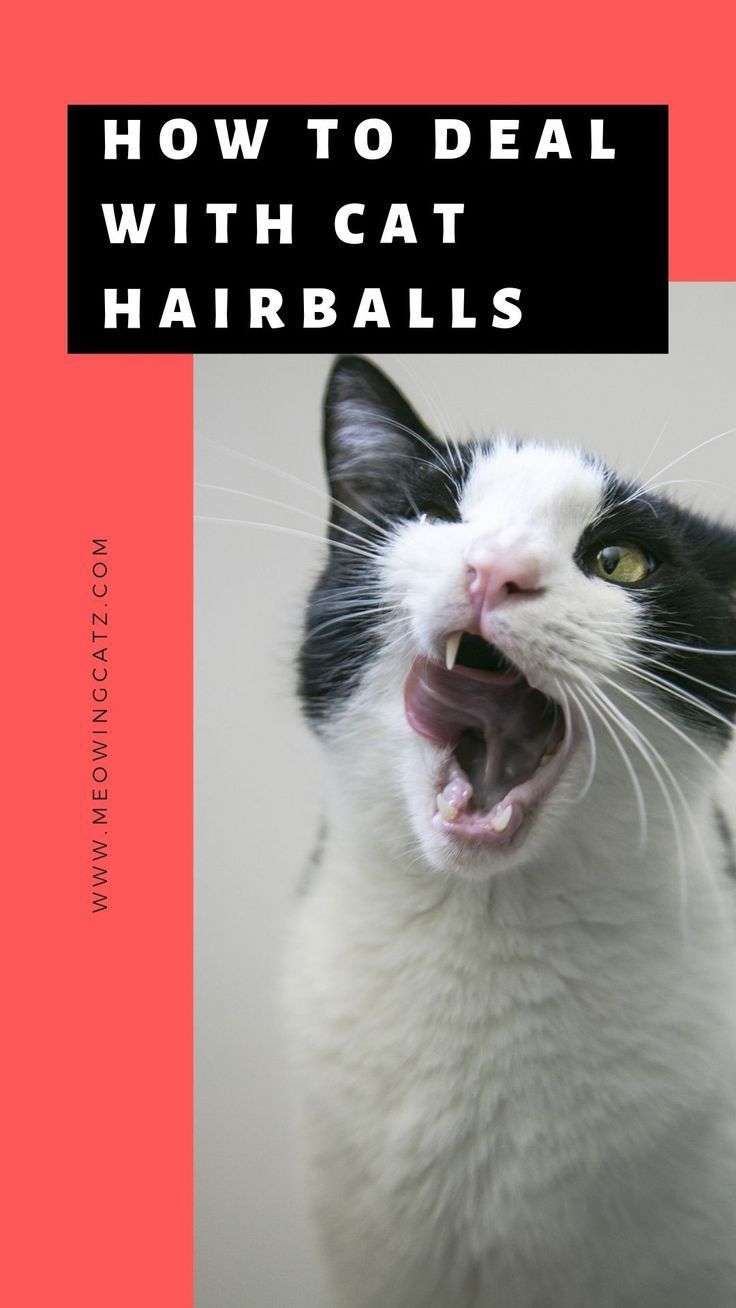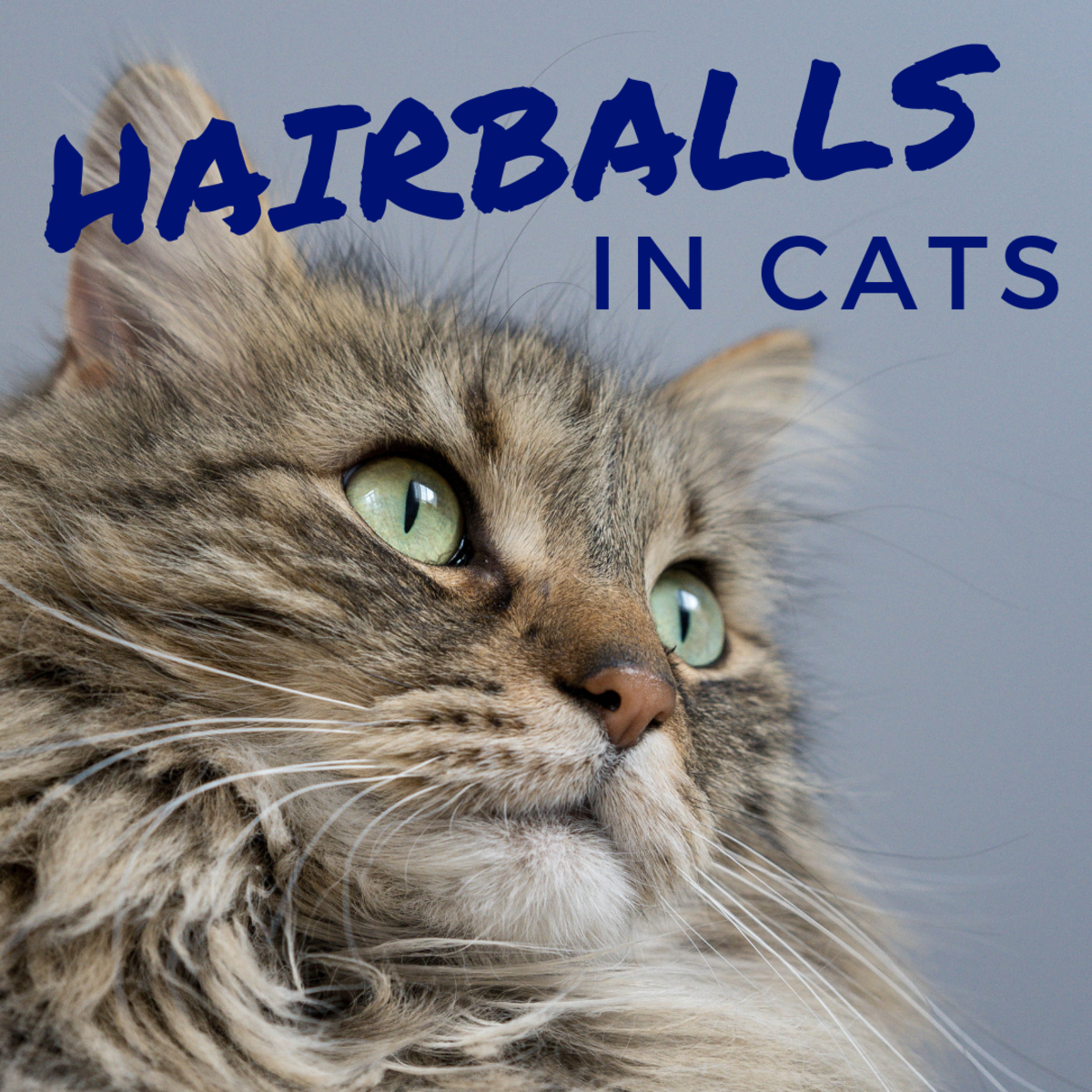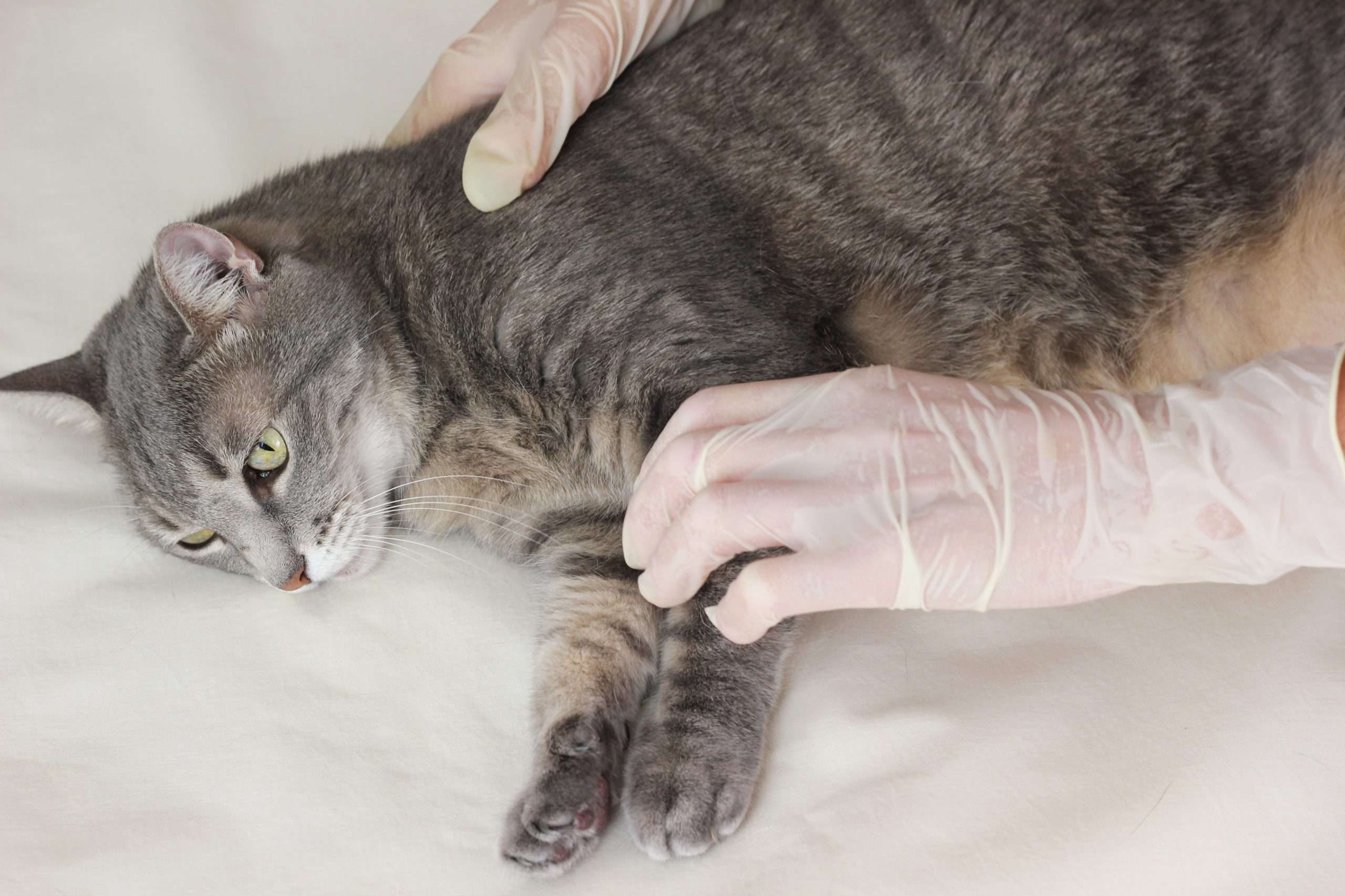When To See A Vet
While you might not need to worry about the occasional hairball, there are some instances in which you should see your vet. Its rare, but hairballs can grow so large that your cat cant pass them, or they can get lodged in the digestive tract, creating a blockage. If the hairball is too large, surgery may be required to remove it.
You should see your vet right away if your cat:
- Tries to vomit but cant get anything out
All That Cleaning And Removing Fur You See Your Cat Constantly Do Leads To Them Swallowing A Lot Of Hair Which Can Collect Into Balls In Their Stomachs Here Is What Cat Hairballs Are And How You Can Help A Cat With Hairballs
Cats are very good at keeping themselves clean. They naturally know how to self-groom, and rarely need bathing. However, during the self-grooming process, they can swallow loose hair and this leads to a cat hairball. Most cats get hairballs from time to time and its usually nothing to worry about. But if you are wondering what is causing them, what are the symptoms you should look out for and how to help a cat with hairballs, here is everything you need to know.
Cats That Get Hairballs
- Long-haired cats
- Cats that groom excessively
- Cats that are not groomed adequately
- Cats with high hair loss that are stressed or have health issues
Caution
Never attempt to medicate your cat at home with human products or those that have not been advised by your veterinarianthe wrong product can be life-threatening!
Also Check: Is Blue Buffalo Good Cat Food
What Causes Cat Hairballs
When a cat grooms, they will typically swallow hair. Some of the hair will pass thorough their digestive tract and into their feces with no complications.
In some cats, the hair will collect in their stomach and develop into a hairball. After hair has accumulated in the stomach and a hairball is formed, it will then be vomited as a long, tubular hair mass that may be covered in slimy mucus.
In some cats, hairballs can become large and cause an obstruction in their gastrointestinal tract.
How Long Does It Take For A Cat To Pass A Hairball

Usually, fur passes straight through the gastrointestinal tract and comes out as a stool. The digestive process takes around 7-12 hours in cats.
Other times, hair collects in the stomach and forms into a hairball. This process takes slightly longer, but healthy hairballs should pass within 24-48 hours.
If your cat shows symptoms that last longer than this, its likely suffering from a blockage or a health condition thats preventing the hairball from sweeping through the digestive tract.
You May Like: Is Dried Lavender Safe For Cats
Are Hairballs Dangerous For Cats
While its normal for cats to bring up the occasional hairball, its abnormal for them to produce one every few weeks or consistently for more than 48 hours at a time. If your cat produces frequent hairballs, it could be the sign of:
- Parasites
- Overgrooming because of stress or pain
- Digestive tract diseases, such as inflammatory bowel disease or intestinal lymphoma
As described by Cornell University College of Veterinary Medicine, a wad of matted hair poses a serious health threat if it grows too large. If the hairball remains trapped in the cats intestines or stomach for a long period of time, it may mineralize and become hard. This will be painful for the cat.
If the hairball is small enough to pass into the small intestine but too large for it to come out through the feces, its likely to become tightly lodged, causing a serious problem. While rare, only surgery can rectify this.
Similarly, if the hairball becomes too hard, theres an increased risk of it getting stuck while the cat vomits it, causing damage to the esophagus. Signs that a hairballs causing your cat a problem include:
- Prolonged gagging
- Chewing on grass
- A swollen stomach
To be on the safe side, take your cat to a vet to make sure its not suffering from a potentially harmful blockage or underlying health condition.
Watching For Asthma Symptoms
You May Like: Blue Buffalo Weight Control Cat Food 15 Lbs
How Else To Treat Cat Hairballs
Maybe you have a Furminator or some other deshedder that seems to be doing the trick for you. Besides brushing you cat, there are other options to treat hairballs. There are products which help cats to pass hairballs if your cat is coughing but cant seem to get it up. Sometimes it takes awhile before the hairball can be coughed up. In those cases, you can give your cat a gel, chew or treat to help them. I have used Laxatone for years for my cats.
Here are some of the more popular ones below. You may need to experiment with flavors to see which one your cat likes best or which one they fight you least on anyway.
How Often Do Hairballs Occur
In general, its normal for a cat to regurgitate hairballs every week or two. Unsurprisingly, long-haired breeds tend to get hairballs more often because they have more hair. Those breeds include, but are not limited to, Persians, Maine coons, ragdolls, Himalayans and Siberians. However, just because long-haired breeds get hairballs more often than short-haired cats, frequent hairballs are not normal for cats regardless of the breed.
Read Also: Blue Buffalo Cat Treat
How To Help A Cat With Hairballs
Many cat owners are concerned when a cat has hairballs because it seems like they are choking or struggling. Whats the best way for owners to help a cat throw up a hairball?
Although its difficult to watch your cat struggling and gagging, the best thing you can do to help them with hairballs is to give them plenty of space. Its perfectly normal for your cat to gag several times to be able to vomit the hairball.
The key is not to get too distressed and just keep an eye on your cat to ensure they bring up the hairball and then stop gagging.
Can Hairballs Be Dangerous
Pictured: Bug the cat had hairballs often. After completing AnimalBiome’s supplements, his loving human reported that he occasionally has a hairball, but nothing like before.
If a hairball gets stuck somewhere in the digestive tract, the resulting blockage can be life-threatening. Gastrointestinal blockages require prompt surgical intervention, so if your cat has any of these symptoms of a possible blockage, see your veterinarian immediately:
- repeated unproductive retching
Pictured: Bug’s four inch size cat hairball that needed to be surgically removed by his veterinarian.
Also Check: Blue Senior Cat Food
Do All Cats Develop Hairballs
As you can guess, long-haired breeds like Persians have the greatest tendency toward hairballs, though any cats can develop them because every cat sheds. The risk is that the hairball can create an internal blockage and require emergency surgery. Far better to practice preventive maintenance such as regular grooming than to risk your cat’s health!
It also turns out there are other symptoms than the semi-routine retching you may have encountered. Any of these are definitely reasons to make an appointment with your veterinarian to discover the source of the problem.
Are Hairballs Dangerous To Cats

If your cat coughs up an occasional hairball but otherwise seems healthy, the hairball is probably not cause for concern. However, regular hairballs, especially coupled with vomiting, warrant a trip to the vet. If your cat is gagging but not producing a hairball, they could be suffering from a blockage in the intestinal tract. Look for these symptoms:
- Vomiting, gagging, retching or hacking without producing a hairball
- Lack of appetite
- Constipation or diarrhea
- Distended belly
If you notice any of these problems, bring your pet to the veterinarian, as they can help your cat cough up the hairball. Your vet may perform diagnostics such as X-rays to see if your cats intestinal tract is blocked and in need of surgery or other therapies.
The occasional cat hairball probably isnt cause for worry, but frequent hairballs may point to an underlying medical condition. And while regularly grooming your cat and feeding them a healthy, high-fiber diet can help minimize your cats struggles with hairballs, if your cat has a chronic issue, schedule a visit to the vet to investigate.
Recommended Reading: Is Bird’s Nest Fern Toxic To Cats
Six Remedies To Reduce The Amount Of Hairballs Cats Develop
How Can I Prevent Hairballs
If your cat is prone to hairballs, the following may help. Always seek veterinary advice and discuss your cats individualized care.
- Improve skin and coat care:
- Comb out loose hair every day use a damp cloth or paper towel to remove fly-away hairs after combing so your cat doesnt swallow them.
- Clipping long-haired cats may be required.
- Look for causes of pain if your cat is focusing on grooming a particular area.
- Look for other causes of skin discomfort.
*Cannon M. Hairballs in cats. A normal nuisance or a sign that something is wrong? J Feline Med Surg 2013 15: 21-29.
Don’t Miss: Why Does My Cat Squint At Me
Recovery Of Hairballs In Cats
A follow-up appointment is necessary for making sure your cat is responding well to treatment. It is vital to schedule a follow-up appointment if the hairball had to be surgically removed. Your veterinarian will check the cats healing and progress and provide instructions for preventing hairballs in the future.
Treating the hairball or intestinal blockage early can lead to a full recovery for your four-legged friend.
*Wag! may collect a share of sales or other compensation from the links on this page. Items are sold by the retailer, not Wag!.
Hairballs Average Cost
Feed Little And Often
Cats empty their stomachs more easily when provided with small, regular meals. However, most owners feed them two large meals a day, which may not help your cats digestive system run as effectively as it could.
Cats that are fed smaller meals can sweep more fur through the stomach and into the intestines. In fact, there is evidence to suggest that feeding your cat little and often is better for feline health. This is because it:
- Mimics their natural tendency to catch regular meals and graze on food
- Can help with weight management
- Provides the cat with a steady source of energy
- May improve their behavior and reduce stress levels
To improve your cats digestive health and reduce the number of furballs, feed it 4-8 small meals a day. If your cat prefers dry kibble, leave out a large bowl for it to graze on throughout the day just make sure your chosen food is complete and balanced.
Also Check: Blue Wilderness Senior Cat Food
What To Do If Your Cat Has Hairballs
If your cat is frequently coughing up hairballs, contact your veterinarian. Here are some cat hairball remedies and treatments that you might try:
-
Laxatone: This is a palatable oral gel that can help bind hair in the stomach and make it easier for the hair to pass through your cats GI tract. These gels can help with hairballs in some cats.
-
Over-the-Counter Hairball Diets: Certain cat food formulas are marketed to help prevent and/or control hairballs. These diets are usually high in fiber and help keep the GI motility normal. A few OTC diets include: Purina Pro Plan Focus Adult Hairball Management or Royal Canin Hairball Care for cats. These diets may be helpful for some cats.
-
Prescription Diets: If your cat has difficulty expelling hairballs, then you should talk to your cats regular veterinarian about options for prescription diets or food additives that may be helpful.
When Nothing Else Seems To Work How To Stop My Cat Getting Hairballs
1. Check for Fleas
Sometimes, cats groom themselves obsessively because they have fleas. Some cats are extra sensitive or develop allergic reactions to flea bites. The itchiness then causes grooming behavior. If you discover fleas, consult your vet for possible treatment options.
2. Check for Underlying Medical Conditions
Obsessive grooming or retching may also be an indication of underlying health conditions, such as intestinal blockage, allergies, asthma, or a neurological disorder. Therefore, make sure to get expert medical advice.
Recommended Reading: Is Blue Buffalo Good Cat Food
Banish Hairballs For A Happier And Healthy Pet
While you wont completely get rid of hairballs you can drastically cut back on the amount your cat produces. In this post youve learned what causes hairballs in cats, and some of the best ways to prevent them.
Weve looked at when you should be concerned, and danger signs to be aware of. Plus, why hydration is so important for your cat.
Weve also looked at a few effective home remedies to help aid your kittys digestion, making it easier to pass everything through. If your cats digestive system is sluggish she wont feel so good.
Its exactly the same for us, and Im sure many of you will know only too well the misery of constipation! Weve taken a quick look at the dietary needs of your cat and how to ensure shes getting everything she needs.
I hope this post has been of use to you as hairballs are something all cat mums will come across at least once in their little ones life! Id love to hear about any experiences you may have had with hairballs. Please leave any comments in the box below.
Wishing you a purrfect day Kathy
The Causes Hairballs In Cats And How To Avoid Them

If you have a cat, you probably think everything they do is cute, even those painful scratches and love bites. The cutest thing that my cat does is groom himself. It reminds me of how cute he looked when he would groom himself as a kitten. He would close his eyes, make a little fist with his paw, and lick away. Most times, he would fall asleep with his tongue out and his paw up. Now as an adult cat, his hair-to-body ratio has tripled! I now enjoy watching how long it takes him to make each lick. However, his beautiful long coat comes at a price hairballs!
You May Like: Is Blue Buffalo Good Cat Food
Your Cat Has Hairballs: Should You Worry
When your cat hacks up a slimy fur sausage of a hairball, you may be disgusted or annoyed . You may also wonder whether thats normal. An occasional regurgitated wad of hair isnt cause for alarm, but frequent hairballs might mean your cat has an underlying health problem, such as anxiety, allergies, or an imbalanced gut microbiome .
Are Hairballs Normal
Ultimately, fur should be able to pass normally through your cat’s digestive tract without causing a blockage or forming a bezoar. Cats are naturally made to groom themselves and swallow small amounts of fur so no, while hairballs are common they shouldn’t really be regarded as ‘normal’. For most cats, regurgitating hairballs more than once a week warrants veterinary assistance.
Recommended Reading: What To Do If Your Cat Eats Chocolate
How To Prevent Them
- Regular Brushing: Regular combing or brushing is absolutely essential for cats of all hair types, but rubber-type brushes are especially useful. I’ve tried using synthetic bristle brushes on my cat, but they don’t seem to pick up hair, so I’ve switch to rubber brushes like the CELEMOON this one is gentle and she prefers it because her hair and body is thin. Try to brush your cat once a day. If they are opposed to brushing, consider rewarding them with treats as they get used to it. If your cat’s hair is too much to handle, consider sending your kitty to a stress-free-handling groomer. Note: Warm weather can increase shedding.
- Proper Nutrition: Certain cat food companies provide special hairball formulas which can help them to pass through the cat’s GI tract. Also be sure your cat is on high-quality food and receiving adequate nutrition for optimal hair health as malnutrition can contribute to hair loss. Foods with high fiber content generally increase GI tract motility. You can also offer them kitty grass which provides extra fiber. Note: Always offer your cat fresh water!
- Regular Health Checks: Have your cat seen by the vet at least annuallyvarious illnesses such as thyroid issues can cause hair losswhich further lead to the unwanted ingestion of hair. Symptoms of inflammatory bowel disease and intestinal lymphoma may causes similar symptoms but have higher consequences.
Reward With Treats